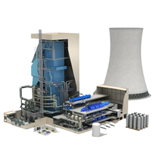Production demands are a heady succession of hills and valleys and plateaus with workforce levels and production trying to adapt to deadlines and dead times. How do you cope with all that and still make a profit? Well, mostly it comes down to the people you have on your floor. Are they full time, part time, or a combination of both?
The case for full time
A full time workforce is obviously a happier, more unified workforce than a transient one. You can't expect to build any sort of culture with people coming and going. You also can't expect even the most qualified temp to step into a job and completely master it straight away. Any new recruit, no matter how skilled, takes time to find their feet. Full time status brings full time understanding of your company nuances and processes. You therefore spend less time training and handholding and more time focussing on the production process itself. A full time workforce allows you to budget accurately according to a set pay roll. Best of all a full time workforce allows you to reward long term loyalty, promote from within, and build a motivated culture based on incentives.
The case for labour hire
You've got a sudden deluge of urgent orders to fill, but you know it's a one off likely to spike production for two weeks. Do you go through all the palaver of placing ads and interviewing untold candidates for such a short term need? And what happens when the two weeks is up? You've still got to pay everyone whether they're working or not. Hire through a labour hire company and you have a huge database of skilled and unskilled workers constantly under starter's orders; workers who can hit your floor running with the right skill set, do the job, and then disappear. No disputes, no delays, and a minimum of training. Labour hire workers have already answered all the questions you'd ask in an interview. They've already met your job requirements. All you have to do is tell your labour hire company who and what you need and they'll select the right people for you. They'll also do most of the paperwork and payroll. Best of all you only pay them for the duration of the hire.
The case for both
In the end a flexible approach to your labour force is probably the best way to go. First consider all your peak production times, be they seasonally influenced or event-oriented peaks – Christmas, Mothers Day and so on. Clearly you want to maximise your manufacturing capabilities during these times and you can do so by topping up your core full time force with skilled labour hire workers. Your core full time staff is calculated according to average off-peak production levels and with trained temps jumping on and off the floor as required, you're not carrying any deadweight when things are quiet.













